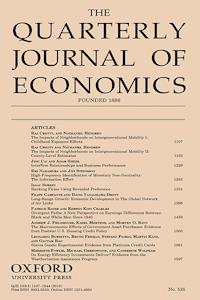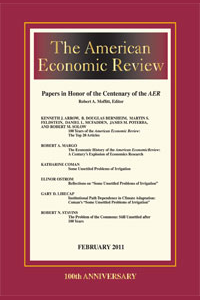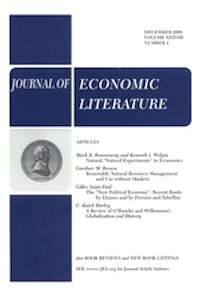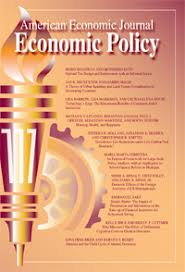
Harris, C. and Laibson, D.
Instantaneous gratification
Quarterly Journal of Economics
Vol. 128(1) pp. 205-248 (2013)
Abstract: Extending Barro (1999) and Luttmer and Mariotti (2003), we introduce a new model of time preferences: the instantaneous-gratification model. This model applies tractably to a much wider range of settings than existing models. It applies to both complete- and incomplete-market settings and it works with generic utility functions. It works in settings with linear policy rules and in settings in which equilibrium cannot be supported by linear rules. The instantaneous-gratification model also generates a unique equilibrium, even in infinite-horizon applications, thereby resolving the multiplicity problem hitherto associated with dynamically inconsistent models. Finally, it simultaneously features a single welfare criterion and a behavioral tendency towards overconsumption.
JEL Codes: C60, C73, D91, E21
Author links: Christopher Harris
Publisher's Link: https://doi.org/10.1093/qje/qjs051 ![]()



